
Dhaka: The Bustling Heart of Bangladesh
Dhaka, the capital of Bangladesh, is a city of vibrant chaos and rich history. Known as the 'City of Mosques', Dhaka is home to over 400 mosques, many of which are architectural marvels. The city's skyline is a mix of modern skyscrapers and historic buildings, offering a fascinating contrast that highlights its rapid development and deep cultural roots. The streets of Dhaka are always alive with activity. Rickshaws weave through the traffic, street vendors sell an array of goods, and the scent of local cuisine fills the air. The city's bustling markets, such as the New Market and Baitul Mukarram, are a shopper's paradise, offering everything from traditional Bangladeshi handicrafts to modern fashion. Dhaka's rich cultural heritage is evident in its landmarks. The Lalbagh Fort, an incomplete Mughal fort complex, is a must-visit for history enthusiasts. The Ahsan Manzil, also known as the Pink Palace, offers a glimpse into the opulent lifestyle of the Nawabs of Dhaka. For a serene escape, the city's many parks and gardens, such as the Ramna Park and Baldha Garden, provide a peaceful retreat from the urban hustle. Food lovers will find Dhaka a culinary delight. The city's diverse cuisine ranges from traditional Bengali dishes like biryani and hilsa fish to international flavors. Street food is a major highlight, with delicacies like fuchka (pani puri) and jhalmuri (spicy puffed rice) being local favorites. Dining in Dhaka offers a unique opportunity to experience the rich flavors and culinary traditions of Bangladesh.
Local tips in Dhaka
- Avoid peak traffic times if traveling by road; Dhaka's traffic can be very congested.
- Dress modestly, especially when visiting religious sites, to respect local customs.
- Always negotiate the fare before taking a rickshaw ride.
- Try the local street food, but ensure it is from a clean and reputable vendor.
- Carry cash, as many smaller shops and vendors may not accept credit cards.
Neighbourhoods in Dhaka
Dhaka: The Bustling Heart of Bangladesh
Dhaka, the capital of Bangladesh, is a city of vibrant chaos and rich history. Known as the 'City of Mosques', Dhaka is home to over 400 mosques, many of which are architectural marvels. The city's skyline is a mix of modern skyscrapers and historic buildings, offering a fascinating contrast that highlights its rapid development and deep cultural roots. The streets of Dhaka are always alive with activity. Rickshaws weave through the traffic, street vendors sell an array of goods, and the scent of local cuisine fills the air. The city's bustling markets, such as the New Market and Baitul Mukarram, are a shopper's paradise, offering everything from traditional Bangladeshi handicrafts to modern fashion. Dhaka's rich cultural heritage is evident in its landmarks. The Lalbagh Fort, an incomplete Mughal fort complex, is a must-visit for history enthusiasts. The Ahsan Manzil, also known as the Pink Palace, offers a glimpse into the opulent lifestyle of the Nawabs of Dhaka. For a serene escape, the city's many parks and gardens, such as the Ramna Park and Baldha Garden, provide a peaceful retreat from the urban hustle. Food lovers will find Dhaka a culinary delight. The city's diverse cuisine ranges from traditional Bengali dishes like biryani and hilsa fish to international flavors. Street food is a major highlight, with delicacies like fuchka (pani puri) and jhalmuri (spicy puffed rice) being local favorites. Dining in Dhaka offers a unique opportunity to experience the rich flavors and culinary traditions of Bangladesh.
When is the best time to go to Dhaka?
Iconic landmarks you can’t miss
Lalbagh Fort
Explore the unfinished Mughal marvel of Lalbagh Fort in Dhaka, a 17th-century testament to love, loss, and architectural grandeur, offering a serene escape into history.
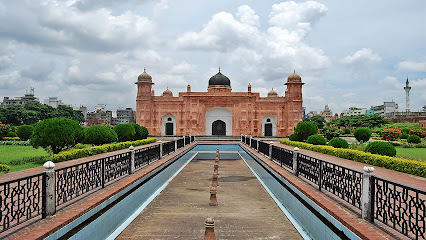
Sohrawardy Udyan
Explore Sohrawardy Udyan in Dhaka: A historic park where Bangladesh's independence was forged, offering serene gardens, iconic monuments, and a vibrant cultural experience.
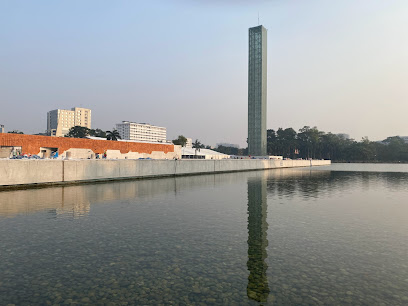
National Martyrs' Monument
Pay homage to the heroes of Bangladesh's Liberation War at the National Martyrs' Monument in Savar, a symbol of resilience and national pride set amidst serene gardens.
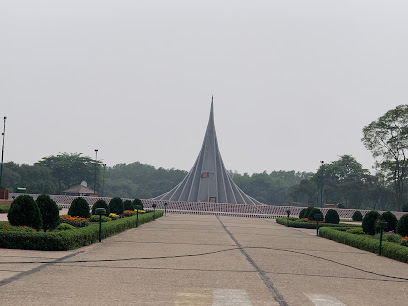
Central Shaheed Minar
A national monument in Dhaka, Bangladesh, honoring the martyrs of the 1952 Language Movement and a symbol of Bengali identity.
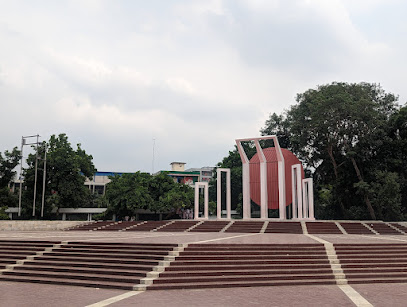
Ahsan Manzil Museum
Step back in time at Dhaka's Pink Palace, Ahsan Manzil, and discover the opulent world of the Nawabs, exploring exquisite artifacts and architecture on the banks of the Buriganga River.
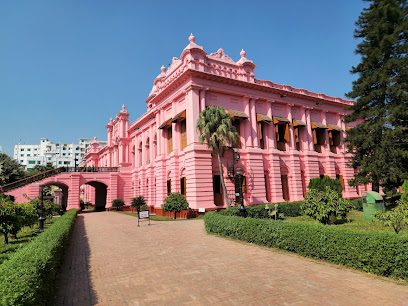
Bahadur Shah Park
Discover Dhaka's layered past at Bahadur Shah Park, a historical landmark that has transformed from a colonial site of executions to a tranquil oasis in the heart of Old Dhaka.
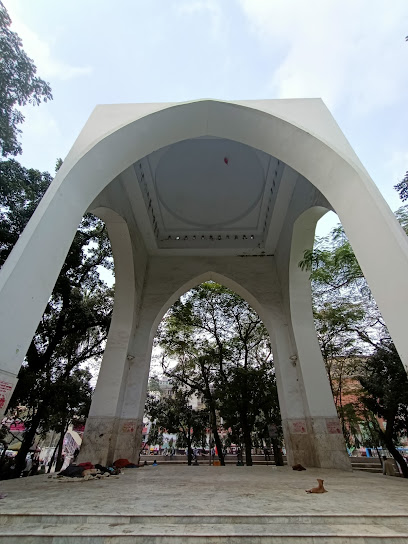
Gulshan Lake Park
Escape the city bustle at Gulshan Lake Park, a verdant sanctuary offering tranquility and scenic beauty in the heart of Dhaka's Gulshan.
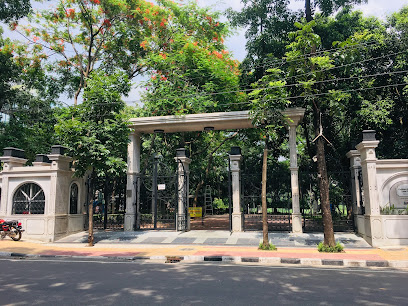
Bangladesh National Parliament House
Discover the architectural marvel of Bangladesh's National Parliament House, a symbol of democracy and a masterpiece by Louis Kahn, blending modern design with cultural significance.
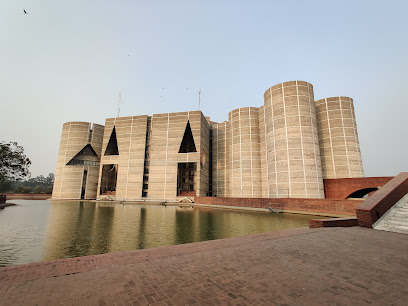
Rayer Bazar Bodhyo Bhumi
A solemn memorial in Dhaka commemorating the intellectuals martyred during the 1971 Liberation War, offering a poignant glimpse into Bangladesh's history and resilience.
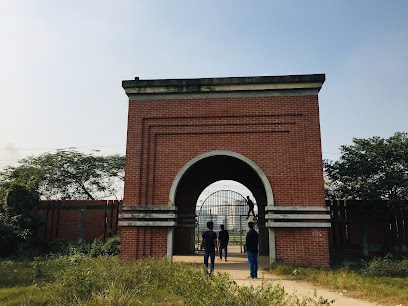
Justice Shahabuddin Ahmed Park
Escape to Dhaka's Gulshan 2: Discover tranquility and nature at Justice Shahabuddin Ahmed Park, a vibrant urban oasis for all.
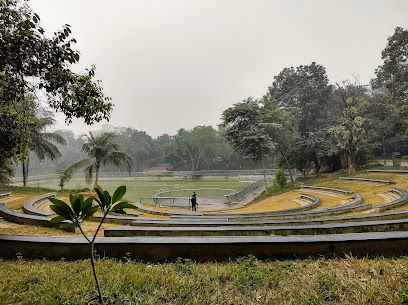
Liberation War Museum
Explore Bangladesh's struggle for independence at the Liberation War Museum in Dhaka, a poignant tribute to the nation's history and the spirit of its people.
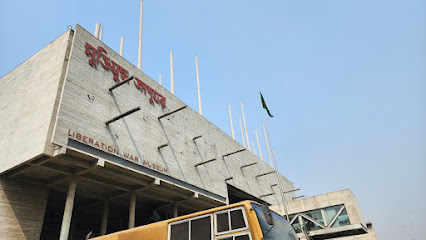
Khan Mohammad Mridha Masjid
Discover the serene beauty of Khan Mohammad Mridha Masjid, a hidden Mughal-era architectural treasure in Old Dhaka, showcasing intricate designs and rich historical significance.
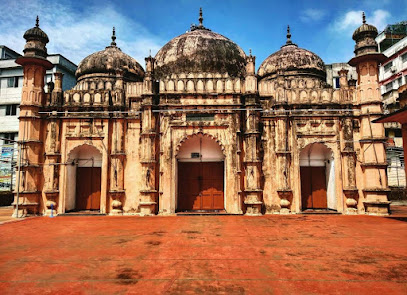
Baridhara Park
Escape the city bustle at Baridhara Park, a tranquil green space in Dhaka's diplomatic heart.
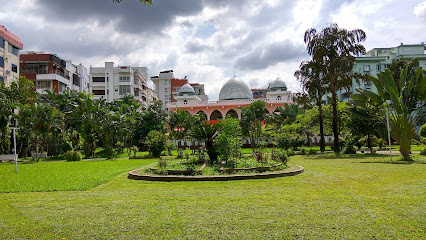
Ruplal House
Explore Ruplal House in Old Dhaka, a 19th-century mansion with neo-classical architecture, offering a glimpse into the city's rich merchant history and colonial past along the Buriganga River.
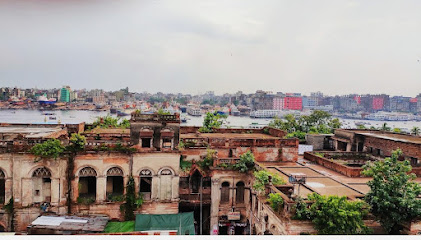
Lalbagh Fort Museum
Explore the unfinished Mughal masterpiece of Lalbagh Fort in Dhaka, a 17th-century complex with stunning architecture, serene gardens, and a glimpse into Bengal's rich history.
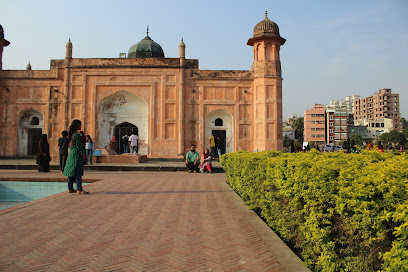
Unmissable attractions to see
Ramna Park
Escape to Dhaka's historic green heart: Ramna Park, a serene oasis of nature, culture, and recreation in the city center.
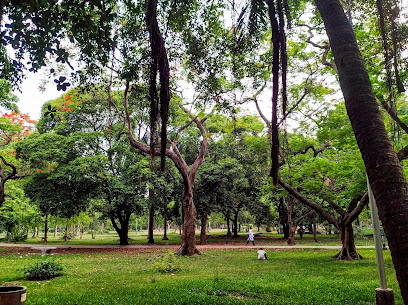
Lalbagh Fort
Explore Lalbagh Fort: Dhaka's iconic 17th-century Mughal marvel, blending history, architecture, and untold stories by the Buriganga River.
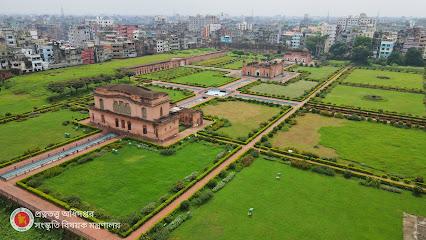
Bangladesh National Zoo
Discover diverse wildlife at Bangladesh National Zoo in Dhaka, a premier destination for animal lovers and family outings.
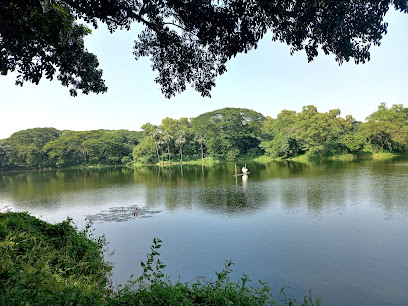
Chandrima Udyan
Escape the city bustle at Chandrima Udyan, a serene park in Dhaka with lush greenery, a tranquil lake, and historical significance.
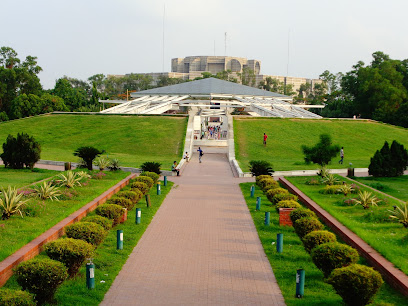
Ahsan Manzil Museum
Explore the Pink Palace of Dhaka: A majestic museum showcasing the opulent lifestyle of the Nawab family and the history of Bangladesh.
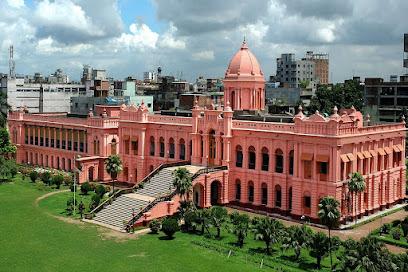
Bangabandhu Military Museum
Explore Bangladesh's military history and heritage at this state-of-the-art museum in Dhaka, showcasing the nation's armed forces.
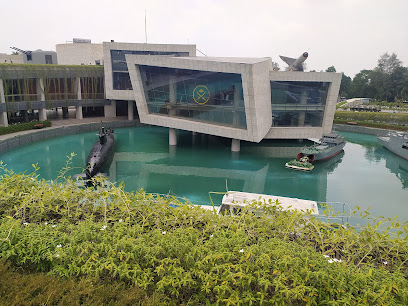
Bangladesh National Museum
Discover Bangladesh's rich history and culture at the National Museum in Dhaka, showcasing artifacts, art, and historical relics from ancient times to the present.
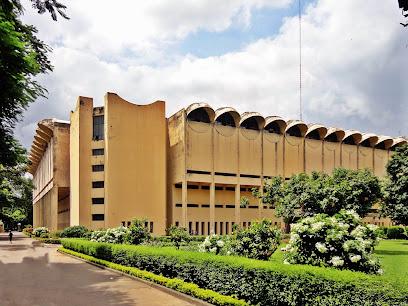
Bangladesh Air Force Museum
Explore Bangladesh's aviation history at the Air Force Museum in Dhaka, showcasing vintage aircraft and the nation's aerial heritage.
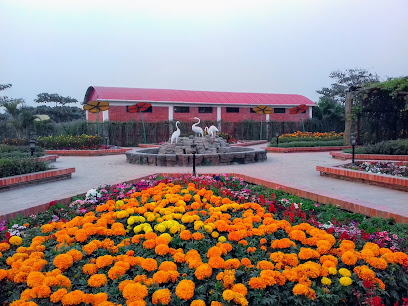
Bahadur Shah Park
Explore Bahadur Shah Park in Old Dhaka: a serene historical site commemorating the Sepoy Mutiny and Mughal heritage, open daily to all.

Dhakeshwari National Temple
Discover the spiritual heart of Dhaka at the Dhakeshwari National Temple, a symbol of faith, resilience, and cultural heritage for Bangladesh.

Bangladesh Folk Art & Crafts Foundation
Explore Bangladesh's cultural heritage at Sonargaon: A treasure trove of folk art, crafts, and traditions.
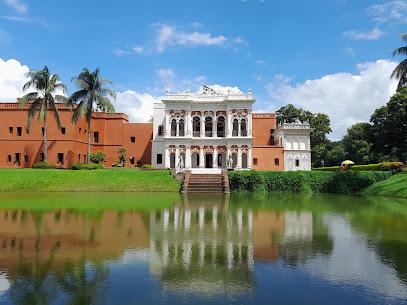
Gulshan Lake Park
Escape to tranquility at Gulshan Lake Park, a verdant oasis in the heart of Dhaka offering scenic beauty and a refreshing break from city life.
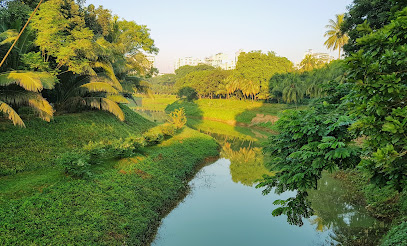
National Botanical Garden, Mirpur, Dhaka
Discover tranquility amidst Dhaka's hustle at the National Botanical Garden, a diverse plant haven and serene escape.
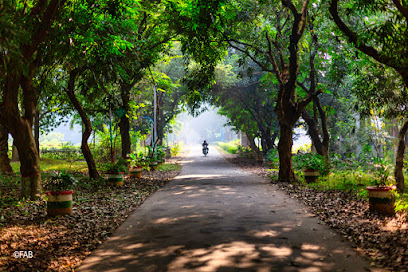
DNCC Wonderland (Shishu Mela)
Experience nostalgic family fun at DNCC Wonderland (Shishu Mela) in Dhaka, offering rides, games, and attractions for all ages since 1985.
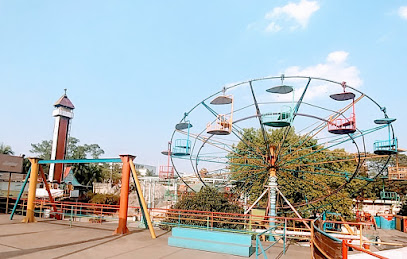
Rayer Bazar Bodhyo Bhumi
Reflect on the sacrifices made for Bangladesh's independence at this poignant memorial honoring the intellectuals martyred in 1971, a place of remembrance and learning.
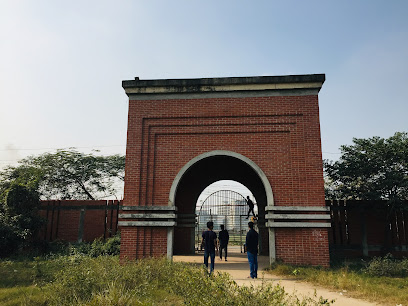
Essential places to dine
Ozz Cafe
Experience the vibrant culinary scene at Ozz Cafe in Dhaka, offering delicious local and international dishes in a welcoming atmosphere.
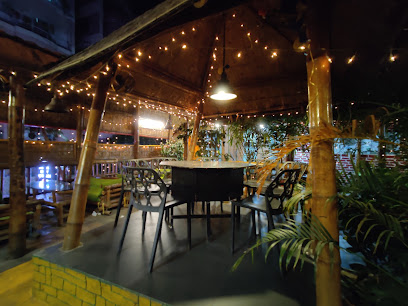
Thai Chi Restaurant & Cafe
Discover diverse flavors at Thai Chi Restaurant & Cafe – where authentic Thai, Chinese, and Indian cuisines meet in Dhaka's vibrant dining scene.
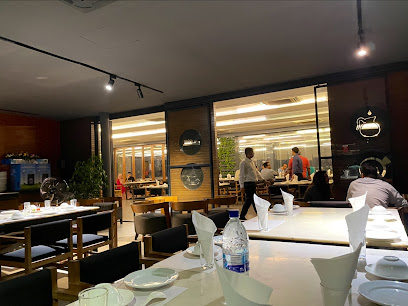
Barcode Cafe
Experience a delightful mix of local flavors and international cuisine at Barcode Cafe in Gulshan, Dhaka.
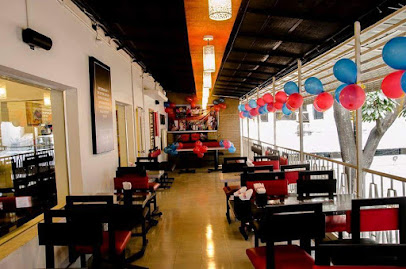
Kabab Factory
Discover Kabab Factory: Dhaka's premier barbecue restaurant offering an unforgettable taste of authentic Bangladeshi kababs and vibrant dining atmosphere.
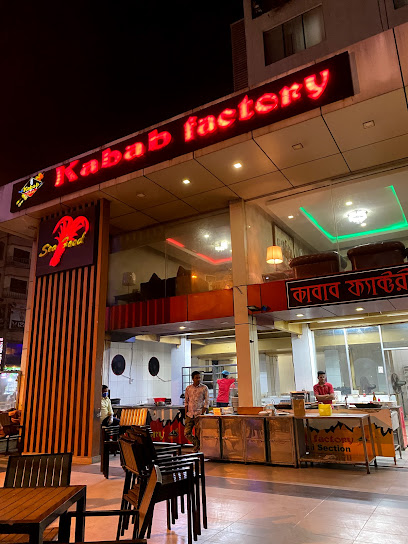
Pinewood Cafe n' Restaurant
Discover the flavors of Dhaka at Pinewood Cafe n' Restaurant - where every meal tells a story.
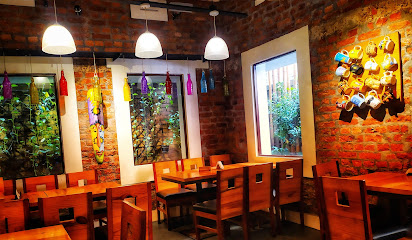
Thai Emerald
Experience authentic Thai flavors at Thai Emerald in Gulshan - a culinary delight for every food lover visiting Dhaka.
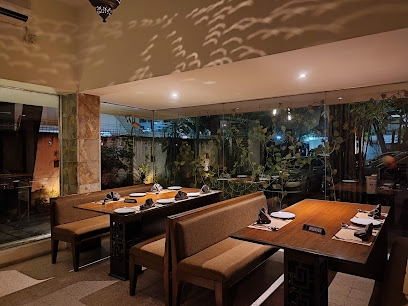
Sajna Restaurant
Experience the rich tapestry of Indian flavors at Sajna Restaurant in Dhaka's Gulshan area, where every meal tells a story.
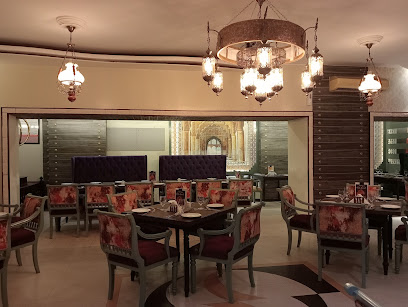
Pinewood Cafe + Kitchen
Discover culinary delights at Pinewood Cafe + Kitchen in Dhaka – where delicious food meets warm hospitality.
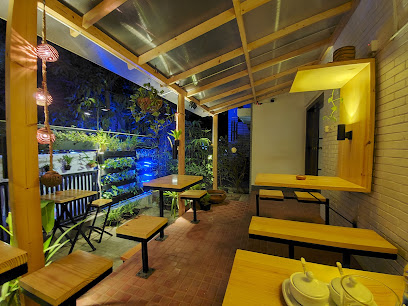
The Atrium Restaurant
Experience an exquisite buffet at The Atrium Restaurant in Dhaka with tantalizing Indian and Thai flavors amidst an elegant setting.
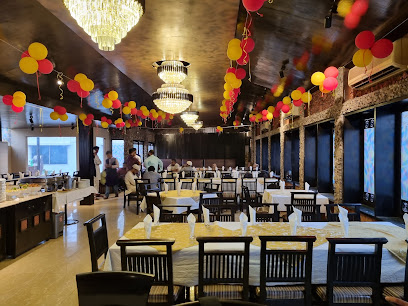
Bird's Eye Roof Top Restaurant and Convention Hall
Discover exquisite Chinese cuisine with breathtaking views at Bird's Eye Roof Top Restaurant in Dhaka.
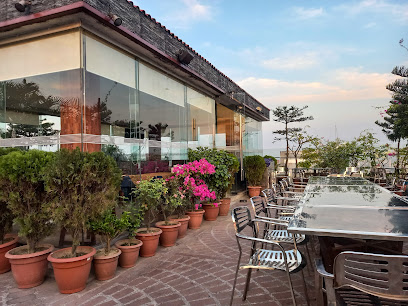
Cafe Eden
Discover the culinary delights of Cafe Eden in Dhaka - where local flavors meet international cuisine in an elegant setting.
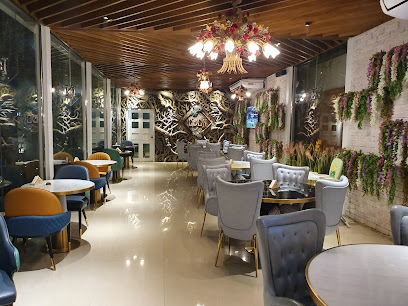
Izumi Japanese Kitchen
Experience authentic Japanese cuisine at Izumi Japanese Kitchen in Gulshan, Dhaka – where every dish tells a story.
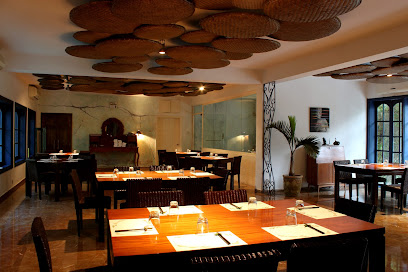
Santoor Restaurant
Discover authentic Indian cuisine at Santoor Restaurant in Dhaka - where every dish tells a story of flavor.
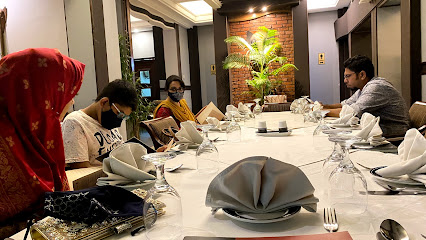
Green House Restaurant And Convention Hall
Experience exquisite Chinese cuisine at Green House Restaurant And Convention Hall in Dhaka – where tradition meets modern elegance.
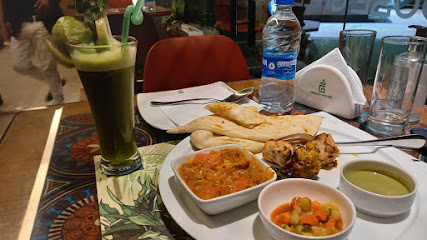
Istanbul Restaurant Dhaka
Experience authentic Turkish cuisine at Istanbul Restaurant Dhaka – where flavor meets tradition in an inviting atmosphere.
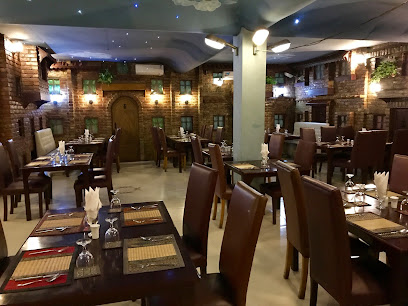
Markets, malls and hidden boutiques
Nurjahan Super Market
Explore Dhaka's Nurjahan Super Market for an exciting shopping experience filled with local fashion and unique finds.
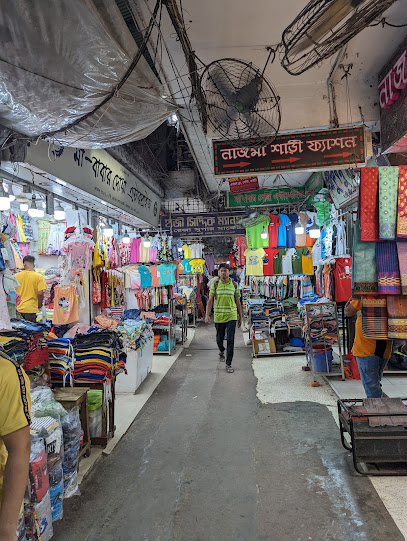
Mustafa Mart - Bashundhara City
Discover a bustling supermarket experience at Mustafa Mart - Bashundhara City, where local flavors meet global brands in Dhaka's vibrant shopping hub.
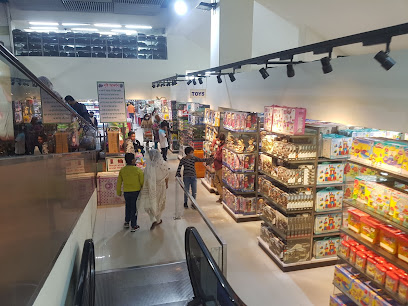
Aarong Wari
Explore Aarong Wari in Dhaka for unique clothing and home goods, celebrating Bangladesh's rich heritage through artisanal craftsmanship and modern designs.
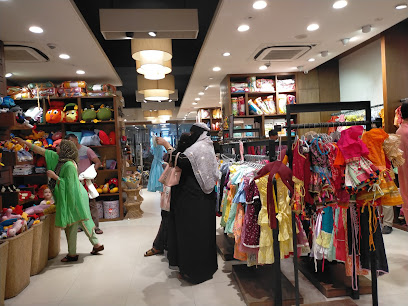
Astorion (Gulshan 02)
Discover contemporary fashion and local designs at Astorion in Dhaka's vibrant Gulshan 02, where style meets culture.
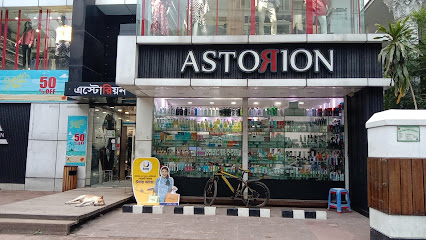
Dhaka Republic
Explore Dhaka Republic - a premier outlet store in Gulshan, where fashion meets affordability for the entire family.
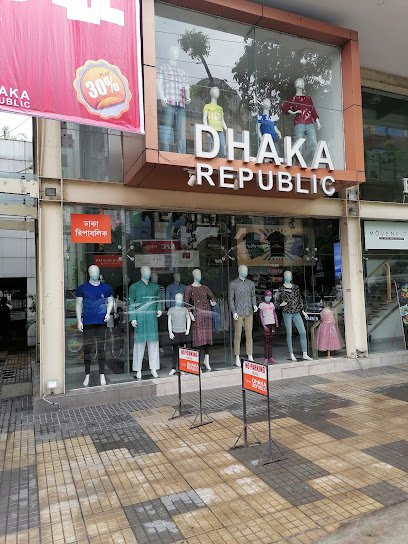
Desire Islamic Store
Explore the heart of Dhaka at Desire Islamic Store, where traditional attire meets unique gifts in a vibrant shopping experience.
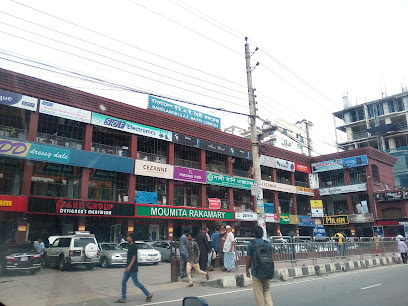
Source- A Fair Trade Gift Store
Explore Source, a Fair Trade Gift Store in Dhaka, where ethical shopping meets unique local craftsmanship, supporting artisans and sustainability.
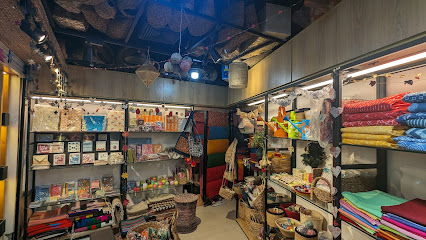
Team14 Gift Shop Dhaka
Explore Team14 Gift Shop Dhaka for unique handcrafted gifts and souvenirs that capture the essence of Bangladeshi culture and artistry.
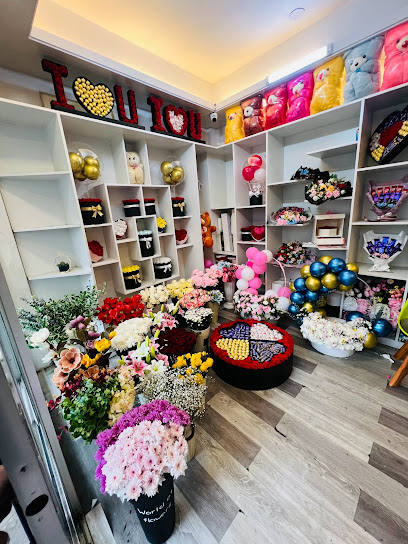
DhakaShop dot com
Explore DhakaShop in Dhaka for a unique shopping experience featuring local fashion and handcrafted gifts from Bangladesh's vibrant culture.
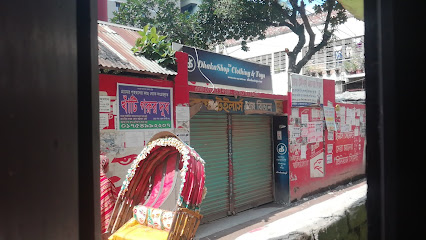
SB Gift Shop-এস বি গিফট শপ
Explore SB Gift Shop in Dhaka for unique gifts and traditional handicrafts that embody the culture and artistry of Bangladesh.
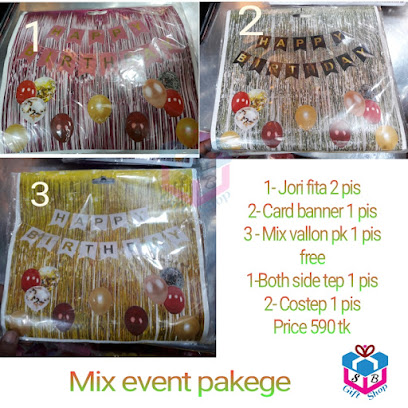
1 To 100 Shopping Center
Explore the vibrant 1 To 100 Shopping Center in Dhaka, a treasure trove of unique gifts, local crafts, and delightful dining options.
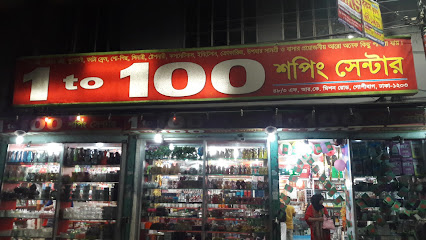
Be-Ni-Aa-So-Ho-Ko-La
Explore Be-Ni-Aa-So-Ho-Ko-La, Dhaka's chic boutique, where local fashion and culture blend seamlessly in a vibrant shopping experience.
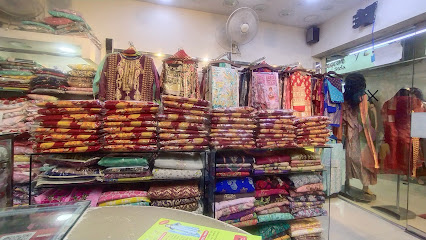
Daily Shop BD
Explore Daily Shop BD in Dhaka for a unique shopping experience that offers women's clothing, baby essentials, cosmetics, and more.
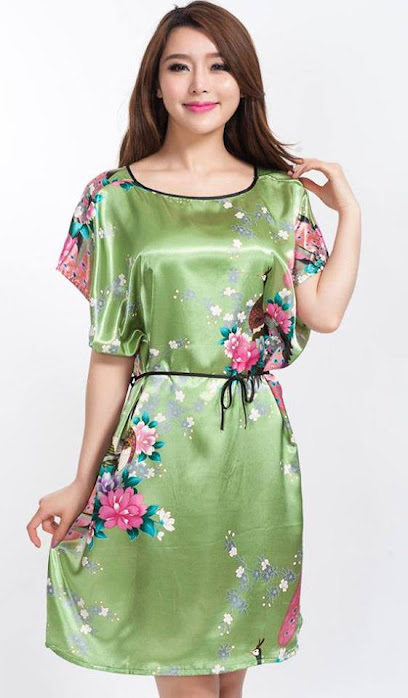
Anik Unique Collection
Explore the rich cultural heritage of Bangladesh at Anik Unique Collection, a premier destination for unique antiques and vintage treasures.
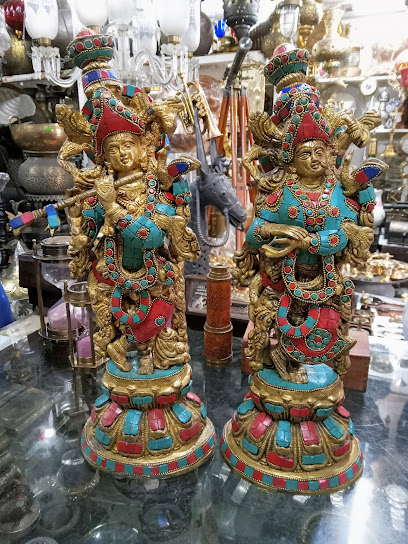
Unique.we
Discover Unique.we in Dhaka: Your ultimate destination for trendy clothing and local fashion gems.
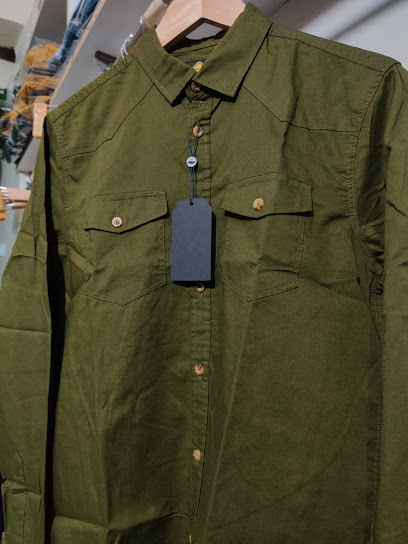
Essential bars & hidden hideouts
Chalet Restaurant & Bar
Experience exquisite dining and vibrant nightlife at Chalet Restaurant & Bar in Dhaka, where culinary delight meets a lively atmosphere.
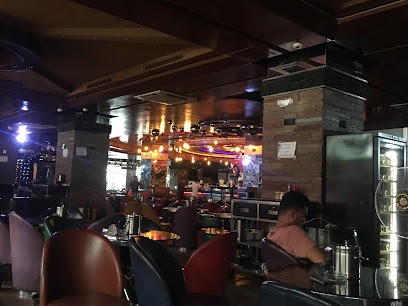
Sakura Restaurant & Bar
Discover the perfect blend of tradition and modernity at Sakura Restaurant & Bar, a culinary oasis in Dhaka's vibrant dining scene.
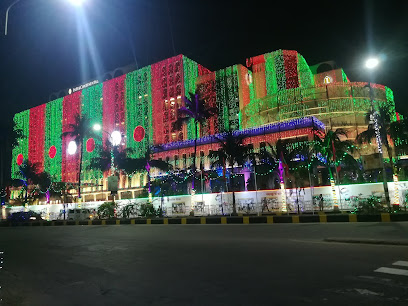
La Diplomat Restaurant & Bar
Experience the vibrant flavors of Bangladesh and beyond at La Diplomat Restaurant & Bar, a must-visit in Dhaka's culinary scene.
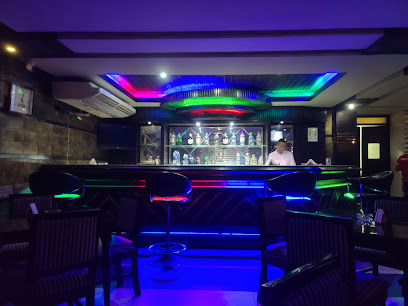
DPL Restaurant & Bar
Discover the perfect blend of exquisite drinks and delicious cuisine at DPL Restaurant & Bar in Dhaka, where the vibrant atmosphere awaits.
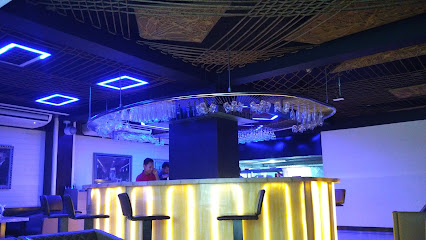
Hotel Grand Galaxy
Discover the vibrant atmosphere of Hotel Grand Galaxy, a top bar in Dhaka offering delicious food and an extensive wine selection.
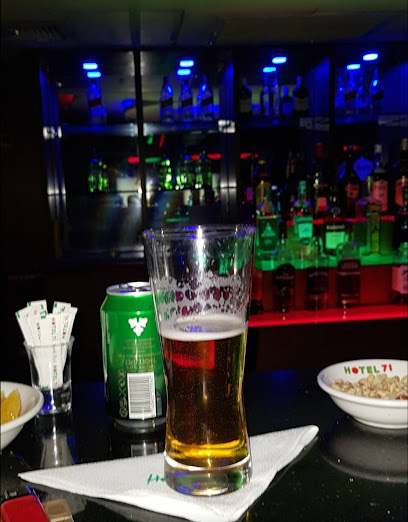
Korea Bangladesh Club & Restaurant Ltd.
Discover a vibrant dining experience at Korea Bangladesh Club & Restaurant Ltd. in Dhaka, offering a fusion of Chinese, Continental, and Thai cuisines.
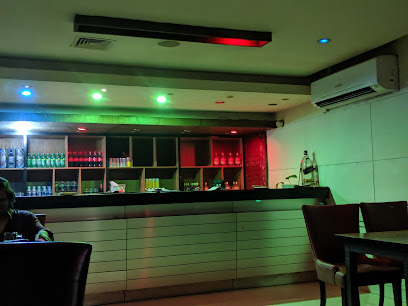
Kingfisher Restaurant & Bar
Discover the vibrant nightlife and exquisite dining at Kingfisher Restaurant & Bar, a must-visit in Dhaka's culinary scene.
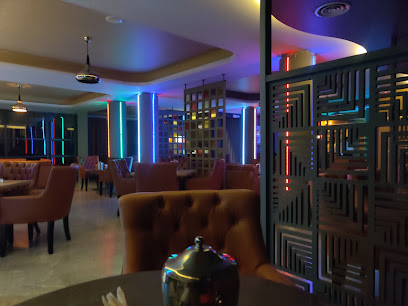
Dimple Restaurant & Bar
Experience the vibrant nightlife of Dhaka at Dimple Restaurant & Bar with delightful local flavors and refreshing drinks.
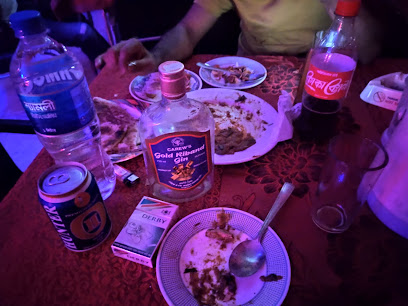
Lake View Recreation Club, Gulshan-1
Experience tranquility and social charm at Lake View Recreation Club, the perfect bar escape in Dhaka's bustling Gulshan area.
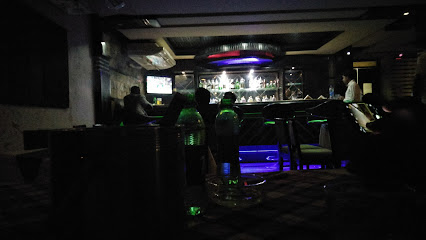
SKYe Lounge Bar
Discover the vibrant nightlife of Dhaka at SKYe Lounge Bar, where elegance meets a lively atmosphere and exceptional drinks await.
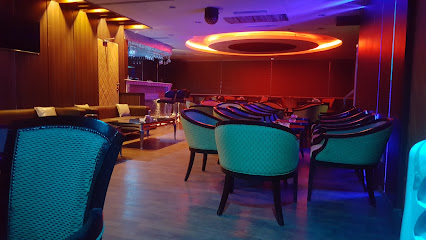
Loki Restaurant & Bar
Discover the perfect blend of local flavors and vibrant ambiance at Loki Restaurant & Bar in Banani, Dhaka.
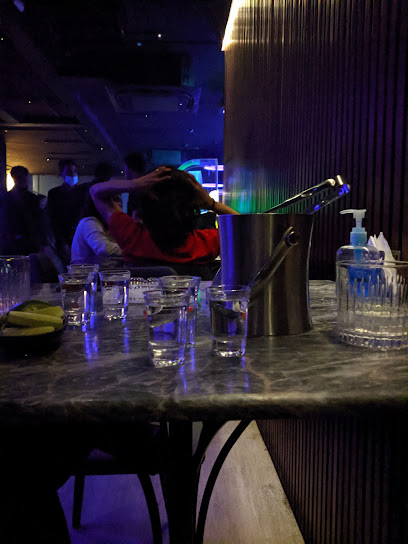
Fuwang Club
Experience the vibrant nightlife of Dhaka at Fuwang Club, where lively ambiance meets exceptional service in a trendy bar setting.
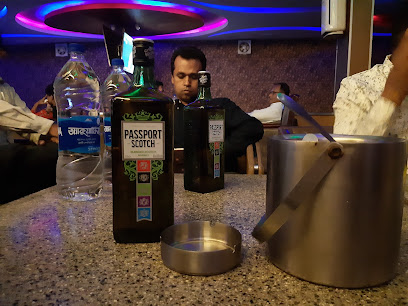
TRIBE Rooftop Lounge
Experience the essence of modern Dhaka at TRIBE Rooftop Lounge, where stunning skyline views meet exquisite cuisine and vibrant nightlife.
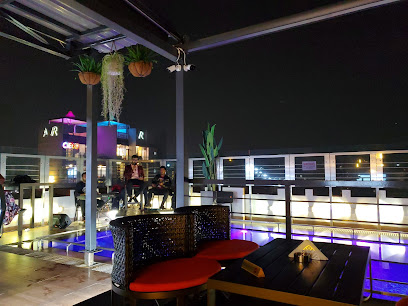
Fu Wang Bar
Experience the vibrant nightlife of Dhaka at Fu Wang Bar, a stylish destination for cocktails, live music, and stunning city views.
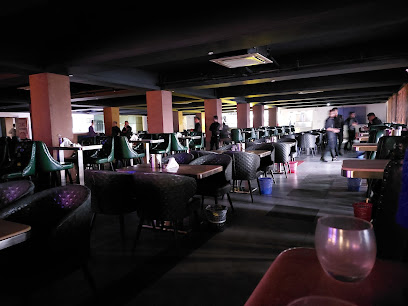
নাইটিংগেল বার
Discover the vibrant nightlife at Nightingale Bar in Dhaka, where delicious drinks and a lively atmosphere await every visitor.
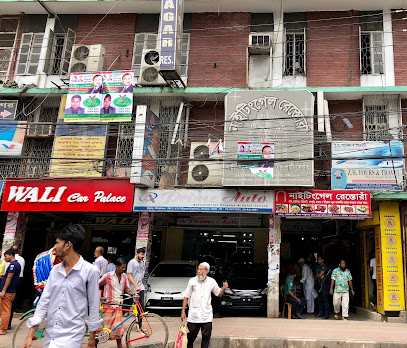
Local Phrases
-
- Helloহ্যালো
[helo] - Goodbyeবিদায়
[biday] - Yesহ্যাঁ
[haan] - Noনা
[na] - Please/You're welcomeদয়া করে
[doya kore] - Thank youধন্যবাদ
[dhonnobad] - Excuse me/Sorryদুঃখিত
[dukhit] - How are you?তুমি কেমন আছো?
[tumi kemon asho?] - Fine. And you?ভালো। তুমি কেমন?
[bhalo. tumi kemon?] - Do you speak English?তুমি ইংরেজি কথা বলতে পারো?
[tumi inglizi kotha bolte paro?] - I don't understandআমি বুঝতে পারি না
[ami bujhte pari na]
- Helloহ্যালো
-
- I'd like to see the menu, pleaseদয়া করে মেনু দেখান
[doya kore menu dekhan] - I don't eat meatআমি মাংস খাই না
[ami mangsh khai na] - Cheers!চিয়ারস!
[cheers!] - I would like to pay, pleaseদয়া করে আমি দাম দিতে চাই
[doya kore ami dam dite chai]
- I'd like to see the menu, pleaseদয়া করে মেনু দেখান
-
- Help!সাহায্য!
[sahayyo!] - Go away!চলে যাও!
[chole jao!] - Call the Police!পুলিশকে কল করুন!
[polishke kol korun!] - Call a doctor!ডাক্তারকে কল করুন!
[doctorke kol korun!] - I'm lostআমি হারানো গেছি
[ami harano geshi] - I'm illআমি অসুস্থ
[ami osustho]
- Help!সাহায্য!
-
- I'd like to buy...আমি ... কিনতে চাই
[ami ... kinte chai] - I'm just lookingআমি কেবল দেখছি
[ami kebol dekhchi] - How much is it?এটা কত?
[eta koto?] - That's too expensiveএটা খুব বেশি দাম
[eta khub beshi dam] - Can you lower the price?দাম কমানো যায়?
[dam kamonu jay?]
- I'd like to buy...আমি ... কিনতে চাই
-
- What time is it?এখন কতটা বাজে?
[ekhon kotta baje?] - It's one o'clockএকটা বাজে
[ekta baje] - Half past (10)10 টা হাফ
[10 ta haf] - Morningসকাল
[shokal] - Afternoonবিকাল
[bikal] - Eveningসন্ধ্যা
[shondhya] - Yesterdayগতকাল
[gatkal] - Todayআজ
[aj] - Tomorrowআগামীকাল
[agamikal] - 1এক
[ek] - 2দুই
[dui] - 3তিন
[tin] - 4চার
[char] - 5পাঁচ
[pach] - 6ছয়
[chhoy] - 7সাত
[shat] - 8আট
[at] - 9নয়
[noy] - 10দশ
[dosh]
- What time is it?এখন কতটা বাজে?
-
- Where's a/the...?...কোথায়?
[...kothay?] - What's the address?ঠিকানা কি?
[thikana ki?] - Can you show me (on the map)?আপনি আমাকে দেখাতে পারবেন?
[apni amake dekhate parben?] - When's the next (bus)?পরের (বাস) কখন?
[porer (bus) kohon?] - A ticket (to ....)একটা টিকেট (.... এ)
[ekta ticket (.... e)]
- Where's a/the...?...কোথায়?
History of Dhaka
-
Dhaka, the capital of Bangladesh, traces its roots back to the 7th century. It was originally known as a major trading center in the region, becoming a prominent city during the Mughal Empire in the 17th century. The city served as the capital of Bengal and was a significant hub for the production of muslin, a fine cotton fabric.
-
During the Mughal period, Dhaka witnessed significant development and prosperity. The city was officially established as the capital of Bengal Subah in 1608 under Mughal Emperor Jahangir. This era saw the construction of many splendid structures such as the Lalbagh Fort, Ahsan Manzil, and numerous mosques, which have become iconic landmarks of the city.
-
In the late 18th century, Dhaka came under British rule following the defeat of the Mughals. The British East India Company established control, and the city became part of the Bengal Presidency. This period saw the introduction of modern infrastructure, including railways and educational institutions, but also led to a decline in Dhaka's traditional industries like muslin production.
-
Dhaka played a pivotal role in the Bengali Language Movement of the early 1950s, which sought recognition for Bengali as one of the state languages of Pakistan. The movement culminated in a tragic but significant event on February 21, 1952, when several students were killed by police during protests. This day is now commemorated as International Mother Language Day. The city also became a center of political activism leading up to the independence of Bangladesh in 1971.
-
Since gaining independence in 1971, Dhaka has rapidly transformed into a bustling metropolis. It is the political, economic, and cultural heart of Bangladesh. The city is known for its vibrant arts scene, bustling markets like the Dhaka New Market and Kawran Bazar, and significant historical sites. Despite challenges such as traffic congestion and urban poverty, Dhaka continues to thrive and grow, reflecting the resilience and dynamism of its people.
-
Dhaka boasts a rich architectural heritage that spans several centuries. From the Mughal-era Lalbagh Fort and the Star Mosque to the British colonial-era Curzon Hall and the contemporary National Parliament House designed by Louis Kahn, the city offers a fascinating blend of historical and modern architectural marvels that tell the story of its diverse past.
-
Dhaka is renowned for its vibrant cultural festivals. The city comes alive during events such as Pohela Boishakh (Bengali New Year), Durga Puja, and Eid celebrations. These festivals showcase Dhaka's rich cultural tapestry, with colorful parades, traditional music and dance, and an array of local culinary delights.
Dhaka Essentials
-
Dhaka, the capital of Bangladesh, is well-connected by air, road, and rail. Hazrat Shahjalal International Airport (DAC) is the primary international gateway, with flights from major global cities. From the airport, taxis and ride-sharing services are available to reach the city center. Dhaka is also accessible by intercity buses from neighboring countries like India, and by trains from other parts of Bangladesh.
-
Dhaka's transportation system includes buses, auto-rickshaws, cycle rickshaws, taxis, and ride-sharing services such as Uber and Pathao. Buses are the most affordable but can be crowded and less reliable. Auto-rickshaws and cycle rickshaws are popular for short distances. For a more comfortable and convenient option, use ride-sharing services or book a private car through your hotel.
-
The local currency is the Bangladeshi Taka (BDT). Credit cards are accepted in major hotels, restaurants, and shopping malls, but smaller businesses and markets often require cash. ATMs are widely available, and currency exchange services can be found at the airport and in the city.
-
While Dhaka is generally safe for tourists, it's important to stay vigilant. Petty crimes like pickpocketing and bag snatching can occur, especially in crowded areas such as markets and public transport hubs. Avoid walking alone at night and be cautious in areas like Old Dhaka and certain parts of Uttara. Always use reputable transportation services and keep your belongings secure.
-
In case of emergency, dial 999 for police, fire, and medical services. Major hospitals in Dhaka include Apollo Hospital and United Hospital, which offer emergency services. It's advisable to have travel insurance that covers medical emergencies. For minor health issues, pharmacies are widely available throughout the city.
-
Fashion: Do dress modestly, covering shoulders and knees, particularly when visiting religious sites. Avoid wearing revealing clothing. Religion: Do respect local customs and practices. Remove your shoes when entering mosques and temples. Public Transport: Do be patient and polite. Public transport can be crowded and chaotic. Don't argue with drivers or passengers. Greetings: Do greet people with a 'Salam' or a handshake. Avoid overly familiar physical contact. Eating & Drinking: Do try local dishes and accept food offerings graciously. Don't eat or drink with your left hand, as it is considered unclean.
-
To experience Dhaka like a local, visit the bustling markets of New Market and Gausia for a shopping spree. Don't miss the street food at places like Chawkbazar and Dhanmondi. Engage with locals, who are often friendly and willing to share stories about their city. For a serene escape, visit the Ramna Park or take a boat ride on the Buriganga River.
Trending Landmark in Dhaka
-
Lalbagh Fort
-
Sohrawardy Udyan
-
National Martyrs' Monument
-
Central Shaheed Minar
-
Ahsan Manzil Museum
-
Bahadur Shah Park
-
Gulshan Lake Park
-
Bangladesh National Parliament House
-
Rayer Bazar Bodhyo Bhumi
-
Justice Shahabuddin Ahmed Park
-
Liberation War Museum
-
Khan Mohammad Mridha Masjid
-
Baridhara Park
-
Ruplal House
-
Lalbagh Fort Museum
Nearby Cities to Dhaka
-
Things To Do in Comilla
-
Things To Do in Agartala
-
Things To Do in Barisal
-
Things To Do in Khulna
-
Things To Do in Jessore
-
Things To Do in Sylhet
-
Things To Do in Rajshahi
-
Things To Do in Chittagong
-
Things To Do in Aizawl
-
Things To Do in Rangpur
-
Things To Do in Shillong
-
Things To Do in Kolkata
-
Things To Do in Guwahati
-
Things To Do in Cox's Bazar
-
Things To Do in Phuentsholing

















